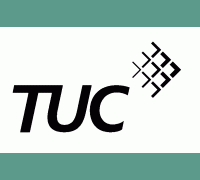This was the first full meeting of the committee elected in March. It elected Dave Allan as chair (a formality as he is the disabled workers’ representative on the TUC General Council); and Annie Galpin as co-chair.
Implementing Disabled Workers’ Conference decisions
TUC staff presented proposals for carrying out the policies passed by this year’s Disabled Workers’ Conference. As this took place seven months ago, they had started some of the work already. This includes:
- continuing to promote the TUC’s workbook on mental health
- campaigning against anti-union laws, including holding a webinar jointly with Free Our Unions
- calling for a statutory right to working from home as a reasonable adjustment.
There was considerable discussion on this, in particular about clarifying the difference between reasonable adjustments and flexible working. Confusing the two has led to many disabled workers requesting flexible working (which employers are not obliged to give) rather than reasonable adjustments (which employers are obliged to provide). It was also stressed that working from home is not suitable for everyone, and that we oppose employers forcing or coercing workers to do it in order to save money.
Committee Campaigning
There has been a welcome increase in committee members organising and speaking at events, including at those hosted by other committee members’ unions. This is helping the committee to become a campaigning, rather than solely an advisory, body. We also plan a leaflet to introduce the committee and its work.
TUC Accessibility
The TUC is developing an internal policy to ensure that its events are as accessible as possible. The draft had some good content, and committee members raised several issues that we wanted to be added.
Disability History Month
- dates: 18 November – 20 December (online launch 18 November)
- website: https://ukdhm.org/
- themes: sex and relationships; hidden impairments
TUC plans: three webinars – sexual harassment; long Covid; pride in disabled identity – speakers to be confirmed, and to include history content
Unison’s charter
Unison asked the committee for support for a disability charter it plans to launch. However, some of the content was at odds with TUC disabled workers’ policy, so we agreed to seek urgent discussions to attempt to resolve this.
Working groups
The Committee agreed to create working groups on:
- education
- accessible transport
- anti-union laws
- international
Hopefully, this will lead to increased activity on these particular issues, all of which are crucial to disabled workers.
-----
Janine Booth
RMT representative, TUC Disabled Workers' Committee
- 2660 reads






